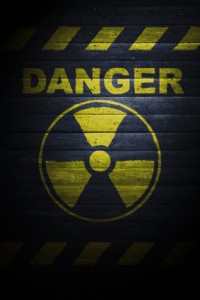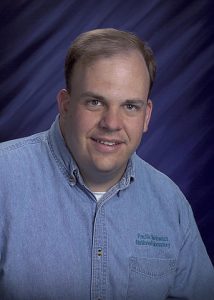 In a relatively obscure part of the state of Washington lies a relatively obscure lab, working to free America from its dependence on its few remaining global enemies, such as Iran and Venezuela.
In a relatively obscure part of the state of Washington lies a relatively obscure lab, working to free America from its dependence on its few remaining global enemies, such as Iran and Venezuela.
The U.S. Department of Energy’s Pacific Northwest National Laboratory works on a few easy little projects such as saving the environment, reducing oil dependence, and preventing terrorism. Recruiting for the last one — preventing terrorism and nuclear non-proliferation — is the work of Rob Dromgoole.
“A modern-day moon shot,” he says of this lofty work. Eight different recruiters at the lab recruit for about 615 hires annually (about half of them interns/students), among a workforce of about 4,200. Turnover is around 6-8%, tenure about 11 years.
Many employees have doctorates, and many masters’ degrees. About half of the hires come via referrals. The rest are from direct sourcing, Monster, CareerBuilder, Facebook, LinkedIn, and from colleges.
Some of the lab’s favorite schools, particularly for candidates with graduate degrees: University of Washington, Oregon State, Michigan, Texas A&M, Carnegie Mellon, and one we mentioned before: University of California-Davis.
The selling point of a job at the lab, which is one of 10 Energy Department Office of Science national labs, is, according to Dromgoole, the chance to do world-changing work.
“Having an impact and a chance to protect the country from a terrorist attack … investigating ways to get off the oil addiction … that’s the modern day moon shot,” he says.
 Dromgoole notes that the United States is the “Saudi Arabia of coal, one of the world leaders in coal deposits.” But since coal is dirty, the lab is looking for ways to make it cleaner by, for example, storing emissions underground. The lab also works on such diverse projects as increasing the energy efficiency of buildings, as well as research on fuel cells. So job candidates (in addition to being promised they won’t fall into a black hole) are told they’ll have a chance to pick from a variety of interesting work. “Intel and Microsoft are telling them what products they are working on,” he says. “Here they have a lot of flexibility in terms of what they want to do. They’re not working for a company shareholder. They’re working for a country shareholder.”
Dromgoole notes that the United States is the “Saudi Arabia of coal, one of the world leaders in coal deposits.” But since coal is dirty, the lab is looking for ways to make it cleaner by, for example, storing emissions underground. The lab also works on such diverse projects as increasing the energy efficiency of buildings, as well as research on fuel cells. So job candidates (in addition to being promised they won’t fall into a black hole) are told they’ll have a chance to pick from a variety of interesting work. “Intel and Microsoft are telling them what products they are working on,” he says. “Here they have a lot of flexibility in terms of what they want to do. They’re not working for a company shareholder. They’re working for a country shareholder.”
Attracting people to a somewhat remote place near the Oregon-Washington border is a challenge. Having said that, it has been voted one of the top locations for scientists and engineers. And you can get a house for under $200,000 — and pay no state income tax.
The real-estate bust has made it hard to attract people from, say, San Diego and Los Angeles, Dromgoole says. When their $750,000 houses are now worth $550,000, they’re in no mood to sell them.
Another recruiting challenge is pay. While lab employees get a good retirement and health plan, “base salaries aren’t as high — competitive, but not the highest, like Google,” he says. “I can’t compete against Google. Though if it’s about the money, they’re not going to be a fit here anyway.”
The lab hires 84 foreign nationals annually. Not all of the organization’s jobs require a clearance, so it can bring in top talent from Bejing and elsewhere when it needs. Still, Dromgoole is concerned that the United States is tightening immigration as other countries — including, but not limited to Canada and European nations — expand it. On top of that, he says, only 6-7% of American college students want to go into science and engineering.
As you might imagine, Dromgoole is a fan of Raghav Singh’s immigration articles. He’s with Gerry Crispin on candidate treatment. And he agrees with Jeremy Eskenazi’s view that this recession is different. Different because recruiting the scientists the lab needs, he says, is still quite a challenge in a slower economy. And that’s not likely to change for a while. “These type of issues are beyond Democrat and Republican. If we don’t need to depend on oil from Iran and the Middle East and Venezuela, Americans are going to be more secure.”